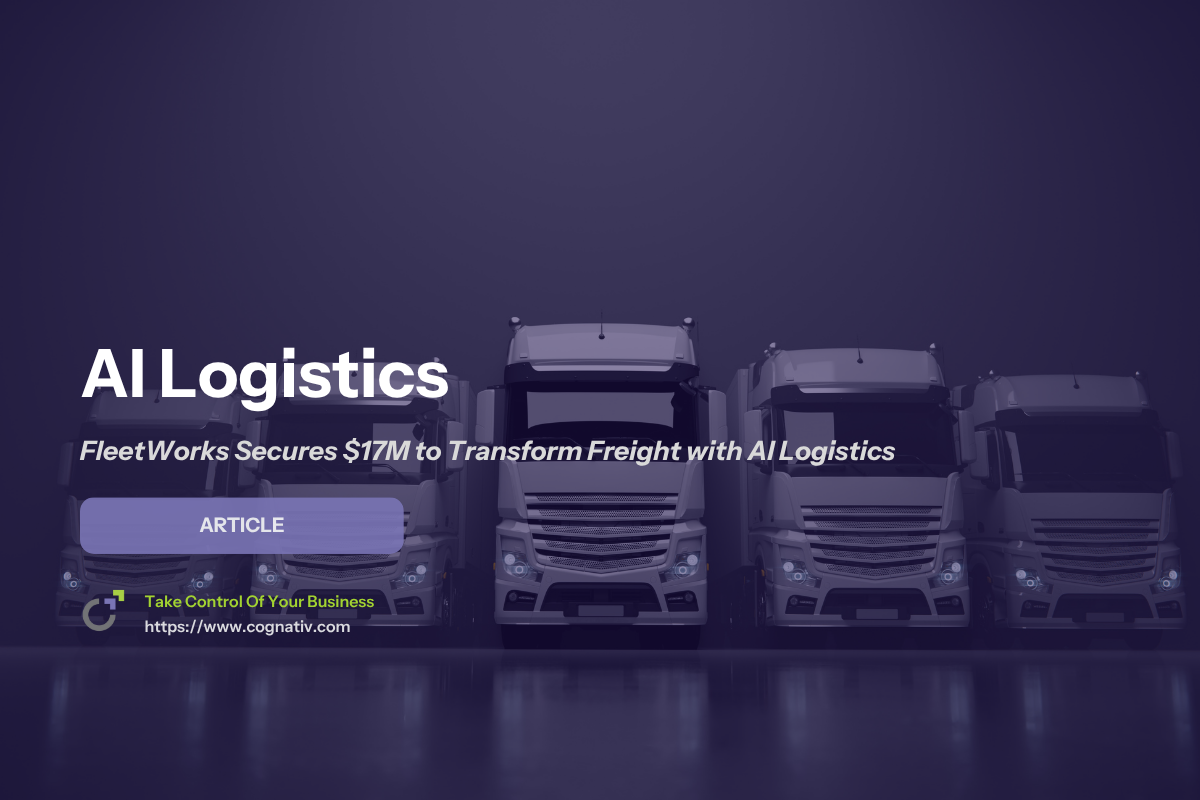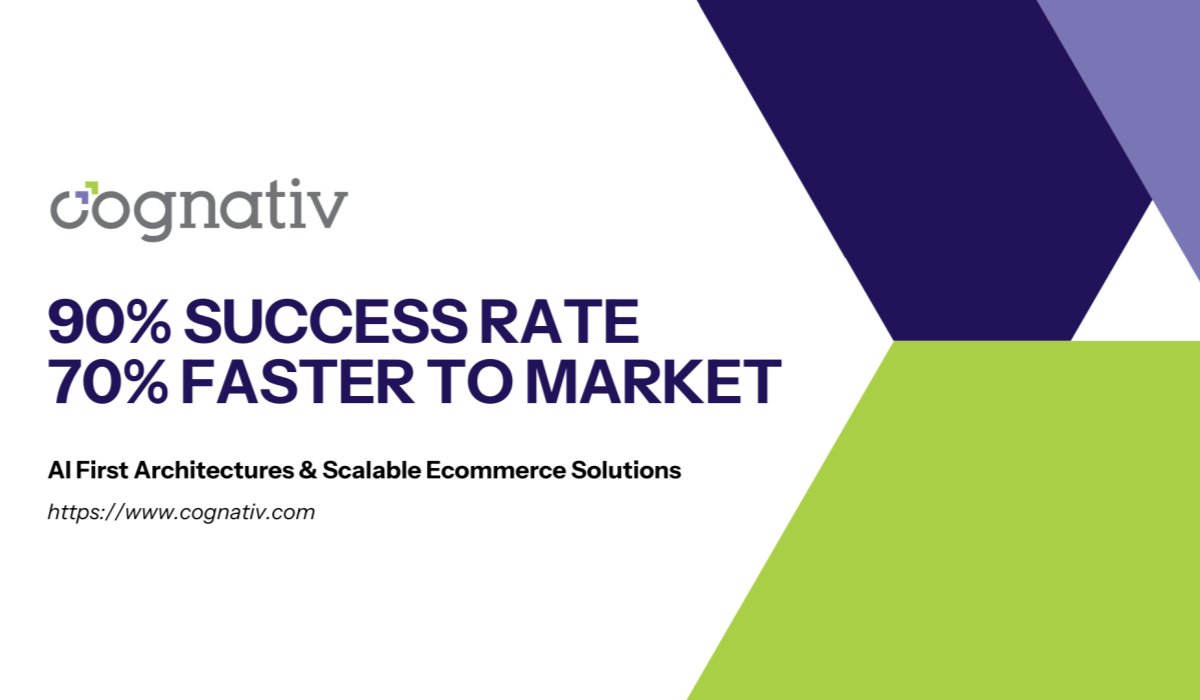FleetWorks Secures $17M to Transform Freight with AI Logistics
The logistics sector is entering a decisive moment. With growing pressure on global supply chains, driver shortages, and tightening delivery expectations, efficiency has become the new competitive edge. In this context, FleetWorks has raised $17 million in Series A funding to scale its AI-powered freight matching platform, signaling how artificial intelligence is reshaping one of the world’s most traditional industries, especially in the area of freight transportation.
FleetWorks aims to optimize how freight is matched with trucking capacity — a problem that has long plagued shippers, brokers, and carriers alike. By introducing an “always-on” AI dispatcher, the startup is promising to cut wasted miles, lower operational costs, and make shipping logistics far more predictable. With more than 10,000 carriers already onboard, the platform is emerging as a real contender in the rapidly evolving AI logistics landscape.
Key Takeaways
-
FleetWorks raised $17 million in Series A funding to scale its AI-driven freight platform, enhancing customer service and ensuring operational efficiency.
-
The company focuses on automating load-matching to optimize freight shipping, reduce costs, and eliminate inefficiencies such as unnecessary shipments and empty miles.
-
Over 10,000 carriers are active on the platform, creating strong network effects that improve supply chain visibility and support better route planning.
-
FleetWorks' AI models leverage advanced data analytics and machine learning to forecast future demand, optimize operations, and manage customer expectations effectively.
-
The AI dispatcher delivers strategic advantages by enabling predictive maintenance, dynamic route optimization, and faster decision-making through actionable insights.
-
By integrating digital twin technology and prioritizing sustainability initiatives, FleetWorks contributes to reducing fuel consumption and lowering labor costs in freight transportation.
-
The freight optimization sector is rapidly evolving into a high-stakes AI battleground, driving innovation to overcome logistics challenges and improve overall supply chain performance.

$17 Million to Accelerate an Industry
The freight industry is massive — and under pressure. Global trucking represents trillions in economic activity, but inefficiencies in matching freight with capacity have persisted for decades. Traditional brokerages rely on manual processes, phone calls, and spreadsheets, creating delays and deadhead miles. FleetWorks sees this not as a logistics problem, but as a data and automation opportunity. Increasingly, AI is being integrated into supply chain management to address these inefficiencies, streamlining operations and improving coordination across the entire logistics network.
Series A as a Strategic Signal
The $17M Series A is more than funding — it’s a signal to the market. Backers are betting that AI will play a decisive role in reshaping how freight flows across supply chains. Unlike many logistics startups that focus on narrow routing or asset tracking, FleetWorks is attacking the core dispatching function, which sits at the heart of the industry’s inefficiencies. To address these challenges, FleetWorks is implementing key strategies for freight optimization, targeting the most critical pain points in supply chain management.
Early capital will be used to:
-
Expand its engineering and data science teams
-
Onboard additional carriers and brokers
-
Build out new predictive optimization modules
In a sector notorious for fragmentation, access to capital and early scale can create a powerful first-mover advantage.
The AI Dispatcher Model
FleetWorks’ core product is an AI dispatcher that continuously scans available freight and capacity, matching loads to the most optimal carrier in real time. Instead of brokers manually contacting drivers, the system:
-
Monitors supply-demand fluctuations
-
Predicts route availability and backhauls
-
Automates bidding and assignment in seconds
-
Performs route optimization to ensure efficient and cost-effective freight movement
The result is a logistics layer that behaves more like a high-frequency exchange than a call center. This shift could fundamentally change how freight is booked, priced, and delivered.

Freight Optimization Software and the Supply Chain Opportunity
Trucking is the backbone of modern commerce. Nearly 70% of freight in the U.S. moves by truck, and similar patterns are reflected globally. Yet despite its economic importance, this sector remains one of the most operationally inefficient segments of the supply chain.
Bottlenecks don’t stem from a lack of trucks or freight, but from misalignment — freight that isn’t matched to capacity at the right time, leading to delays, empty miles, and revenue loss. Optimizing freight operations is essential to resolving these bottlenecks, as it enables better management and coordination of shipping activities across the supply chain. This is precisely the pain point that AI logistics platforms are built to solve.
Why Trucking Is the Bottleneck?
Traditional freight brokerage is highly fragmented, relying on human dispatchers who operate on limited visibility. Matching loads to trucks is often:
-
Manual
-
Reactive
-
Based on incomplete or outdated data; the lack of access to comprehensive historical data further limits effective decision-making.
As a result:
-
Carriers run empty or partially loaded on return trips (deadhead miles).
-
Shippers face unpredictable pricing and delayed delivery.
-
Brokers spend valuable time on repetitive coordination rather than optimization.
This inefficiency compounds across thousands of daily transactions. In aggregate, it represents billions in lost value for the logistics ecosystem.
AI Load-Matching as a Competitive Advantage
What FleetWorks is doing differently is building algorithmic precision into an industry that has long run on gut instinct and phone calls. By integrating AI-driven load matching:
-
Carriers receive instant, optimized route assignments, improving utilization rates.
-
Shippers access faster, more predictable pricing.
-
Brokers reduce operational overhead and scale their reach exponentially.
The platform’s always-on AI dispatcher essentially acts as a real-time trading engine — pairing supply and demand based on location, pricing trends, backhaul predictions, and regulatory constraints. Advanced analytics are also leveraged to further refine load-matching and pricing strategies, enabling more accurate, data-driven decisions and operational efficiency. In a sector where margins are tight, shaving minutes off each transaction translates to massive competitive leverage.

Building a Smarter Logistics Marketplace
Freight optimization isn’t just about algorithms — it’s about networks. The strength of a marketplace is directly tied to the size, diversity, and activity of its participants. FleetWorks has already attracted more than 10,000 carriers, giving it meaningful coverage and data density.
With every transaction, FleetWorks’ AI learns: this accumulation of data provides actionable insights for both shippers and carriers, helping them identify trends, inefficiencies, and opportunities to improve their logistics strategies.
Network Effects and Carrier Onboarding
Every new carrier onboarded increases the value of the network. More trucks mean more routes, more freight matching opportunities, and better pricing dynamics. For shippers, this translates into more reliable capacity. It also leads to improved service quality across the network. For carriers, it means fewer idle miles and better revenue per trip.
Unlike legacy broker platforms, FleetWorks is designed with frictionless onboarding and automated compliance checks. Carriers can connect in hours instead of days, allowing the network to scale fast — a crucial factor in marketplace-driven industries.
Scaling with Data, Automation, and Operational Efficiency
The true advantage lies not just in the network size, but in how the data compounds over time. With every transaction, FleetWorks’ AI learns:
-
Route preferences and performance patterns
-
Carrier behavior and capacity trends
-
Market demand fluctuations
This feedback loop improves matching accuracy and pricing intelligence, creating a self-reinforcing system. Reliable data is essential for maintaining and enhancing the platform's performance, ensuring that insights and decisions are based on accurate and trustworthy information. Over time, that kind of data moat is nearly impossible for late entrants to replicate.

Environmental Impact and Sustainability
The logistics industry faces mounting pressure to address its environmental impact and embrace sustainable practices across the supply chain. As consumer demand and regulatory expectations shift toward greener operations, logistics companies are turning to freight optimization as a key strategy for minimizing their carbon footprint.
By leveraging advanced data analytics and machine learning, logistics service providers can streamline logistics operations, reduce transportation costs, and optimize logistics processes to minimize waste. Freight optimization enables companies to identify the most efficient routes, consolidate shipments, and reduce unnecessary miles traveled—directly lowering fuel consumption and emissions.
These data-driven approaches not only support environmental goals but also drive operational efficiency and cost effectiveness. By integrating sustainable practices into logistics planning, companies can build a more resilient supply chain, meet evolving customer expectations, and position themselves as leaders in a competitive market. Ultimately, prioritizing sustainability through freight optimization is essential for reducing the environmental impact of logistics operations while ensuring long-term business success.

Market Landscape and Competitive Pressure
The logistics sector has always been highly fragmented, with thousands of small and mid-size brokerages competing for freight volumes across regional and national markets. In this environment, digital platforms have started to consolidate fragmented capacity, giving rise to a new class of logistics players that behave more like technology infrastructure than traditional intermediaries. This shift reflects broader market trends toward digitalization and AI adoption in logistics, as companies respond to evolving industry demands and technological advancements.
FleetWorks isn’t the first to enter this race — but the timing and technological positioning are notable. AI logistics platforms are moving from niche tools to mission-critical infrastructure for shippers and carriers.
Digital Freight Platforms vs. Traditional Brokers
The difference between traditional brokers and digital freight platforms comes down to scale, speed, and intelligence:
-
Traditional brokers rely on manual dispatching, often tied to personal relationships and siloed data.
-
Digital freight platforms operate programmatically, automating matching, pricing, and capacity planning.
-
AI-first companies like FleetWorks layer predictive intelligence on top, enabling near-real-time decision-making by leveraging AI to improve operational performance and optimize resource utilization.
This evolution mirrors what happened in financial markets two decades ago: manual matching gave way to algorithmic exchanges. The same pattern is now emerging in freight.
As more shippers adopt contractual and on-demand freight solutions through digital platforms, the competitive advantage of traditional brokers continues to erode. Platforms that scale fastest — and learn the fastest — will define the next decade of freight movement.
Regulatory and Infrastructure Headwinds
Despite the promise of AI-driven logistics, the sector faces non-trivial structural constraints:
-
Regulatory oversight: Freight and trucking are governed by strict safety, labor, and compliance rules. AI dispatching must align with these frameworks to ensure legal liability is clear.
-
Infrastructure limitations: Congested highways, driver rest requirements, and aging logistics nodes limit how much optimization can achieve without physical upgrades.
-
Data governance: As AI platforms collect and analyze massive volumes of operational data, concerns over security, privacy, and interoperability grow.
FleetWorks and its competitors must build trust not only with carriers and shippers, but also with regulators and policymakers. Scaling AI logistics isn’t just a technical or financial challenge — it’s a systems integration problem at a national and global level. Ensuring compatibility with existing systems is crucial to achieve seamless integration and avoid disruptions to current operations.

Final Thoughts — Logistics Is the Next AI Frontier
For decades, logistics has been a slow-moving, asset-heavy sector. But the convergence of AI, automation, and real-time marketplaces is accelerating its transformation at a speed few anticipated. FleetWorks’ $17 million Series A isn’t just a funding milestone; it’s part of a broader structural shift that’s turning freight dispatching into a programmable, data-driven function.
If AI can optimize routing, reduce deadhead miles, and increase utilization at scale, the economic ripple effects will be profound:
-
Lower transportation costs
-
Higher network resilience
-
Reduced emissions from more efficient routing
-
Greater predictability for shippers and carriers alike
Freight optimization may lack the public glamour of autonomous vehicles or humanoid robots — but it’s one of the most impactful real-world applications of AI happening right now.
The next decade of logistics will belong to platforms that blend deep industry knowledge with technical precision. And with thousands of carriers already in its network, FleetWorks has positioned itself to be one of those key players.


